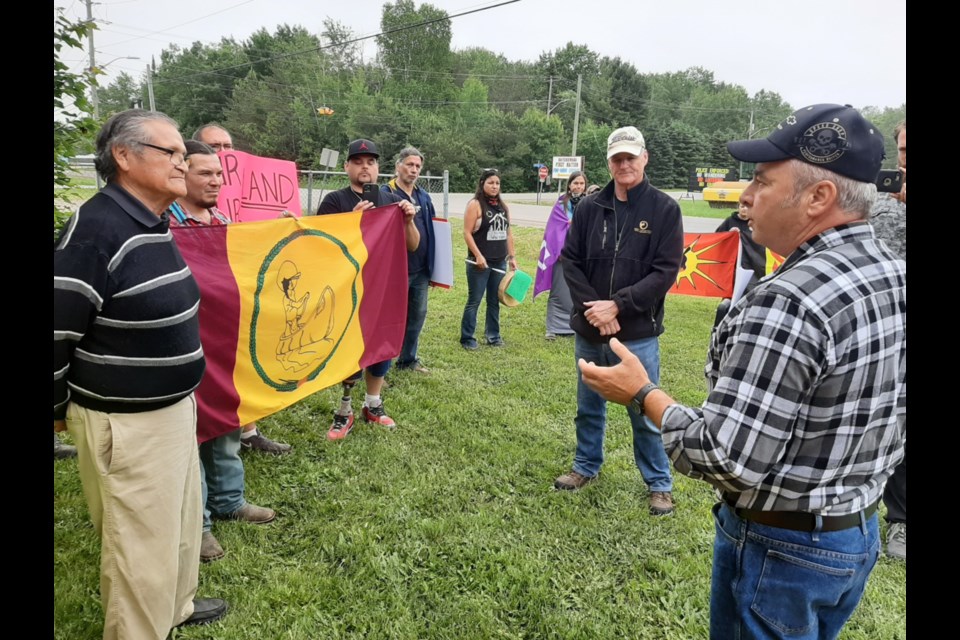A group of cannabis dispensers and their supporters held rallies outside police buildings in Garden River and Batchewana First Nation territories Sunday.
The rallies were held in protest against notices given by the Anishinabek Police Services (APS) that police will raid unlicensed cannabis dispensaries in Garden River First Nation, their owners and employees faced with legal consequences.
The rallies were also in protest to efforts by Batchewana First Nation council to shut down cannabis dispensaries and a community garden on that territory.
Band and council members have stated the dispensaries are operating without a license.
The dispensary owners say that stems from a flawed system.
“This system we have in First Nations communities is a very racist system. It doesn’t let us be Anishinaabe...we want to be left alone, we don’t want to be harassed anymore, we don’t want to be bothered, we don’t want these letters (from police or chief and council) coming out. Leadership can come and see us,” said Brendan Syrette, owner/operator of a Batchewana First Nation cannabis dispensary known as The Ranch, speaking at the rally.
He has also used proceeds from his dispensary to build a community garden.
“They (chief and council) believe they can create their own laws, but they don’t have the power, it's the people who have the power,” Syrette said, speaking to SooToday.
“We are dispensary owners. We can take care of things from seed to sale…what we’re stating is ‘leave us be, we can take care of it on our own.’ We are going to build an economy whether they like it or not. We are going to build a self-sustaining economy and that’s our mission as Anishinaabe people to take care of one another.”
In 2018 and 2019, the Garden River First Nation chief and council put a moratorium on the production and sale of cannabis in GRFN until a Cannabis Law of its own can be finalized.
The GRFN chief and council have stated in a June 11, 2020 letter it hopes ratification of its Cannabis Law can take place in July or August 2020.
The letter stated the Canadian federal government did not engage with First Nations communities regarding any First Nations participation in the cannabis industry.
Protestors stated Sections 25 and 35 of The Constitution Act exempts cannabis dispensaries from regulation by the Cannabis Act.
A letter from the protestors addressed to APS and read out at Sunday’s rally, read “we are concerned that your actions perpetuate colonial, racist attitudes toward Indigenous people. We remind you your presence in our territory for the enforcement of the Cannabis Act is unnecessary, unwelcome and outside of your jurisdiction.”
Grand Chief Del Riley (author of Sections 25 and 35 of The Constitution Act and former Chief of the National Indian Brotherhood, forerunner to the current Assembly of First Nations) travelled from southern Ontario to voice his support.
“We’ve got to develop our own economy. We can’t do it under The Indian Act,” Riley said, adding “chief and council are a corporate body.”
Allen James (Jim) Sayers, an off duty Batchewana First Nation APS sergeant who visited the rally, told the protestors he too has been the target of racism.
“I’ve been on both sides of this. I’ve been on roadblocks, been charged, been on the law side and learned the law...people have to sit at a round table and talk about it. Police can facilitate that.”
“I offer to sit down with everybody so our community can heal together and stay together and work together, whatever the issues are,” Sayers said.
Sault OPP Constable Brian Speakman was on hand in an official capacity at the peaceful rally.
Several rally attendees thanked Sayers for his words, calling them a step forward.
